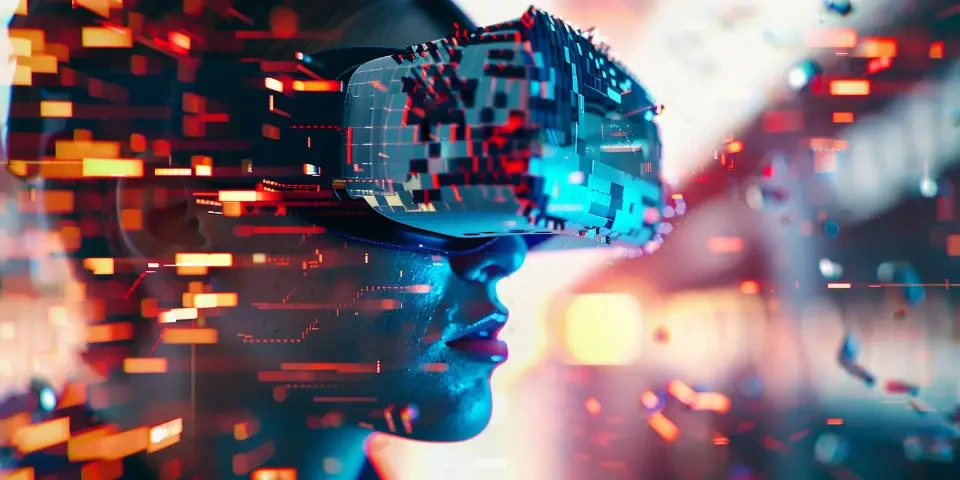Looking Ahead Work How AI is Transforming Job Markets
Artificial Intelligence (AI) is revolutionizing the job market at an unprecedented pace. As intelligent machines become more capable, they are increasingly taking over tasks that were once exclusively performed by humans. This transformation is impacting job markets worldwide, requiring individuals and organizations to adapt to the changing landscape. In this article, we will explore the various aspects of how AI is transforming job markets and what it means for the future of work.
1. Automation of Routine Tasks
AI technologies are automating routine and repetitive tasks, enabling companies to optimize their operations. This automation reduces the need for human involvement in mundane, time-consuming activities, freeing up employees to focus on more complex and creative tasks. However, it also raises concerns about job displacement and the need for reskilling or upskilling workers to remain relevant in the job market.

2. Enhanced Decision-Making
AI systems equipped with advanced algorithms can analyze massive amounts of data and provide valuable insights for decision-making. This technology empowers businesses to make more accurate predictions, identify trends, and optimize strategies. As a result, professionals will need to acquire skills in data interpretation and become proficient in collaborating with AI systems to utilize their insights effectively.
3. Personalization and Customer Experience
AI-powered chatbots, virtual assistants, and recommendation systems are improving the customer experience by offering personalized interactions and tailored suggestions. These technologies can understand customer preferences, habits, and needs to provide timely and relevant assistance. Businesses that leverage AI to personalize their offerings will have a competitive edge in attracting and retaining customers.
4. Innovations in Healthcare
AI is transforming the healthcare sector, enabling faster and more accurate diagnoses, personalized treatments, and efficient patient care. Machine learning algorithms can analyze medical images, genetic data, and patient records to identify patterns and diagnose diseases early on, saving lives and improving outcomes. However, ethical concerns, privacy issues, and the potential need for new regulations arise as AI becomes increasingly integrated into healthcare systems.
5. Transforming Transportation
Self-driving vehicles and AI-powered logistics are reshaping the transportation industry. Autonomous cars and trucks have the potential to eliminate human error, reduce accidents, and optimize fuel consumption. Additionally, AI algorithms can optimize routing, fleet management, and supply chain operations, leading to more efficient and cost-effective transportation networks.
6. Cybersecurity and Fraud Detection
As AI becomes more sophisticated, it also plays a crucial role in enhancing cybersecurity and fraud detection. AI algorithms can continuously monitor network behavior, identify anomalies, and detect potential threats in real-time. However, cybersecurity professionals will constantly need to upgrade their skills to stay ahead of cybercriminals who may also utilize AI for malicious purposes.
7. Impact on Employment and Job Creation
The adoption of AI technologies undoubtedly impacts employment patterns, potentially leading to job displacement in certain sectors. However, history has shown that while jobs may be automated, new roles are created as a result. Organizations must collaborate with educational institutions to equip individuals with the skills needed to fill these emerging roles, ensuring a smooth transition in the job market.
8. Ethical Challenges and Regulation
AI raises ethical concerns regarding privacy, bias, and transparency. The use of AI algorithms that make critical decisions, such as in hiring processes or criminal justice systems, needs careful consideration to avoid perpetuating harmful biases. Governments and organizations must establish regulations and frameworks to ensure the responsible and ethical use of AI technology.
Frequently Asked Questions
Q: Will AI replace all jobs in the future?
A: While AI will undoubtedly automate certain tasks, new jobs will also emerge that require human creativity and expertise. It will reshape job roles rather than eliminating them entirely.
Q: Can AI completely replicate human decision-making?
A: AI can make decisions based on data and algorithms, but it lacks human emotions and contextual understanding. Certain decisions still require human judgment and ethical considerations.
Q: How can workers prepare for an AI-dominated job market?
A: Workers should focus on acquiring skills that complement AI, such as critical thinking, creativity, emotional intelligence, and adaptability. Lifelong learning and upskilling will be crucial to remain employable.
References:
[1] Jones, M., & Macpherson, A. (2020). AI and the Future of Work: Human-Machine Collaboration. Retrieved from https://www.mckinsey.com/business-functions/mckinsey-digital/our-insights/ai-and-the-future-of-work-human-machine-collaboration
[2] Brynjolfsson, E., & McAfee, A. (2020). The Second Machine Age: Work, Progress, and Prosperity in a Time of Brilliant Technologies.
Step into a world of endless companionship possibilities with Wemate AI! Our platform integrates advanced AI technologies for realistic, engaging conversations and playful roleplay. Customize your experience with various aesthetics—anime to realistic—and let your creativity shine. Ready to meet your virtual buddy? Join Wemate AI today!
Explore your companion in WeMate